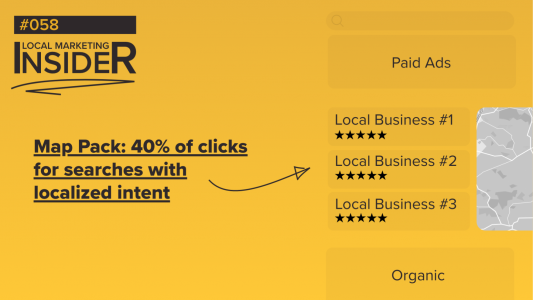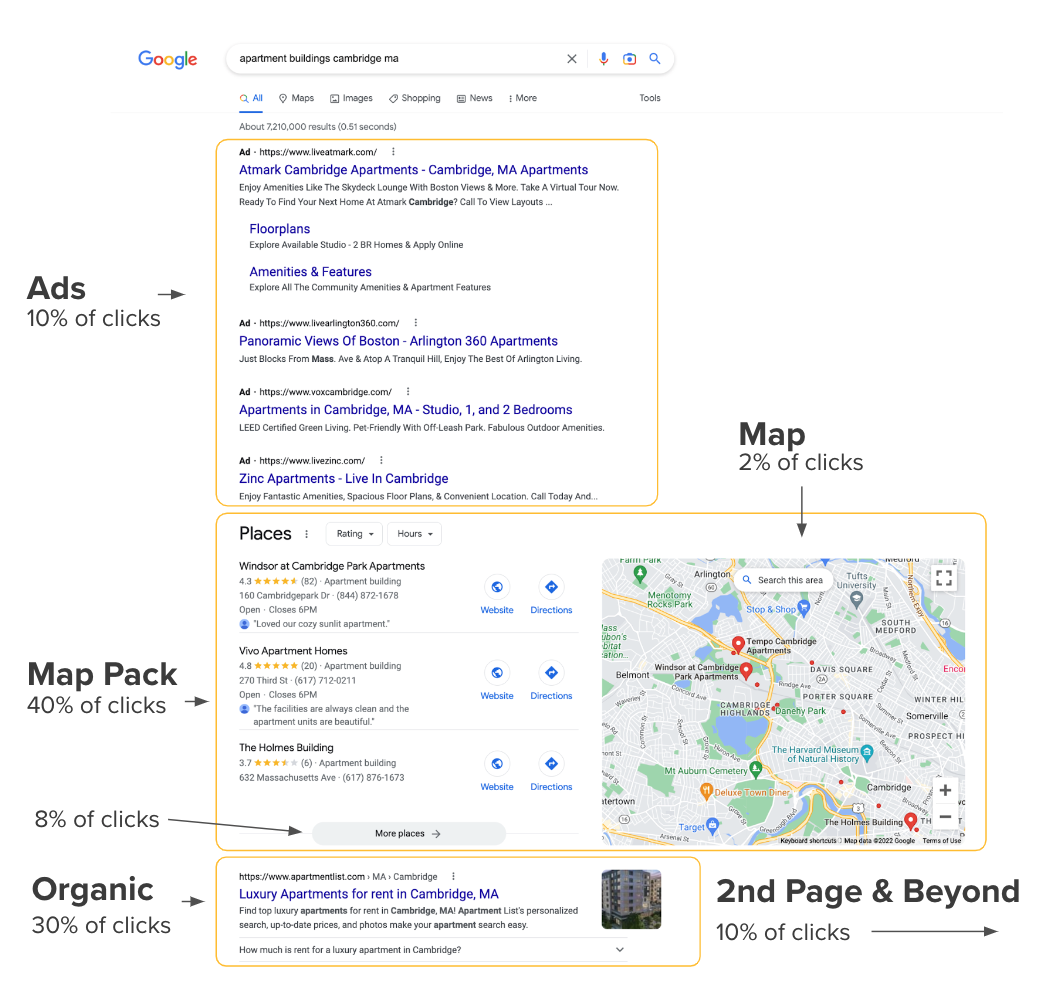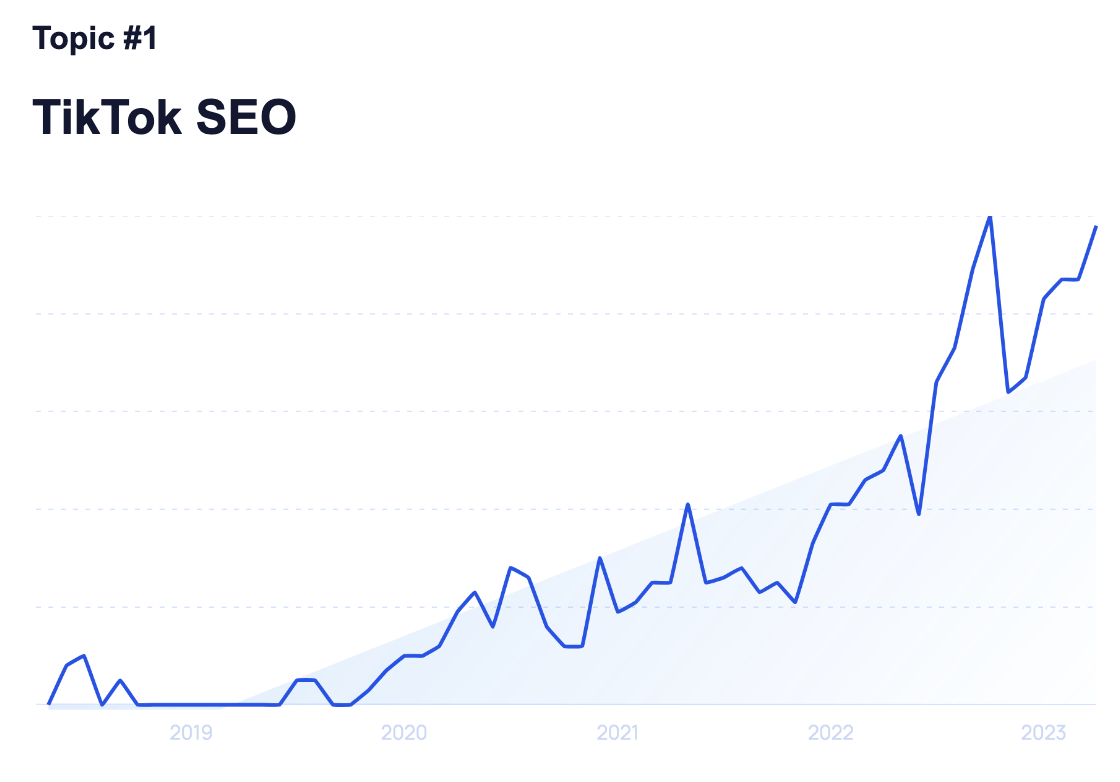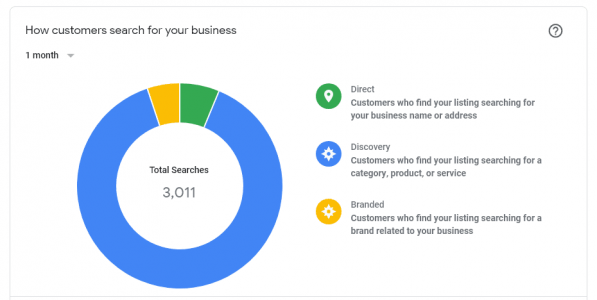- Feb 17, 2021
- 96
- 75
- Awards
- 4
- First Name
- Jake

Hey! Welcome to Local Marketing Insider where 10,000+ local marketing professionals get better at reputation strategy & more with insights delivered 2x a month.
Read the other articles. Subscribe.
Welcome back to another LMI.
This week I'm breaking down the first page of Google search results.
Where does the traffic go? What types of businesses compete for space in each section? Where should local businesses focus, and why?
Let's get into it.
3 Sections: Paid, Map Pack, Organic
For searches with localized intent (“store,” “near me”), normally the first page of Google is broken up into three major sections: paid, map pack and organic.Here are the estimated click percentages:

What stands out to me is that 40% of clicks are going to the Map Pack. And 37% of those clicks go to the first business in that pack. This is a huge advantage to local businesses, primarily due to less competition, which I’ll explain in more detail later.
How Do Businesses Show Up in Each Section?
The tactics to show up in each section are a bit different for each, so I’ll briefly explain how they differ.Paid Ads
How to show up
- Buy placement with Google Ads
- Optimize campaign architecture, bidding strategy & target keywords
- Listing sites
- Local businesses
- Other non-local businesses in certain situations
How to show up
- Google Business Profile optimization
- Matching or related primary category (i.e. does your business offer the product or services the searcher requests?)
- Review volume, frequency, quality and response
- Proximity to the searcher
- Local businesses
How to show up
- On-page SEO
- Keyword inclusion in site content, meta descriptions, title tags etc.
- Domain authority
Listing sites
- Local businesses
Where Should Local Businesses Focus Efforts/Budget?
Undoubtedly, the Map Pack.The reason for this is two-fold.
One, listing sites, or any other type of non-local business cannot ever rank in the Map Pack (you need a GBP to be considered). Two, the Map Pack, in many localized searches, is the first group of non-paid listings shown.
The relationship between listing sites and local businesses requires a deeper explanation. The two simultaneously have a co-dependent and competitive relationship.
Any car dealer spending money with Cars.com or multifamily community spending money with Apartments.com is doing so to source leads. But, this money also finds the paid marketing strategy that will take up space on search results that the local business wants to rank for itself.
You’re paying listing sites to bid on the same keywords you bid on. And listing sites are serious competitors.
Before Widewail, I spent many years at CarGurus. The team there that is tasked with driving traffic to CarGurus via paid and organic search is comprised of multiple masters/doctorate-level mathematicians, spending seven figures a month while optimizing the site for tens of millions of keywords. That’s some serious competition.
Listing sites take the fee you send to them every month and put it back towards the same keywords you’re bidding on.
I see ranking in traditional organic search as even more of an uphill battle for local businesses. While still important, its resource-intensive, time-consuming, and a listing site with thousands of units of inventory objectively offers a better experience to the searcher in the eyes of Google.
To prove my point, just do a quick search for “car dealer near me” or “studio apartment for rent near me” and you’ll see how dominant listing sites like Cars.com and Apartments.com are in paid and organic search.
How Do Businesses Rank in the Map Pack?
Understanding that 40% of local search clicks go to the Map Pack and 37% of those clicks go to the first business listing in the Map Pack, how should businesses go about achieving better placement?7 or 8 years ago, we used to think that the searcher's location was the primary driver of position in the Map Pack – as in, Google would show results in order of proximity to the searcher.
And it used to be that way. In 2020, it was proven that reviews actually carried more weight in local search than the location of the searcher.
Why? Because Google has the ability now to assess customers’ sentiment and reported experiences.
When you can understand what people are saying about a business, you can ensure that you're sending a searcher to an offline, real-life experience that is good for them.
Google wants to make sure people use Google. So just in the past few years, the importance of broadcasting that fantastic customer experience has continued to rise.
37% of the clicks in that Map Pack go to the first result. That first result, more often than not, is a location that has high transaction volume, is receiving a frequent number of reviews every single month, has a great quality of reviews, and has a response strategy. That's how we show we care about that resident, that customer, that guest.
Showing up in the Map Pack is about demonstrating a great experience by driving high volume and good quality reviews.
Earlier this week, this trend from Exploding Topics was passed around my team:

From the article: "37% of users discover new products and services on TikTok. And having posts rank higher on search results can significantly increase a product's or service's visibility. This explains why videos mentioning “TikTok SEO” have gathered over 1.2 billion views on the platform."
TikTok as an alternative, primarily visual, search engine continues to gain momentum. Read LMI #041 for more background.
See you in 2 weeks - Jake, Marketing @Widewail







 removed. Now you've wasted your time.
removed. Now you've wasted your time.
